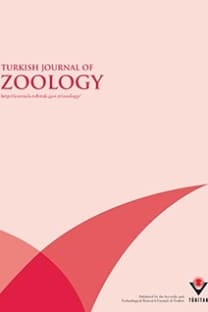In vivo Effects of Malathion on Glutathione-S-Transferase and Acetylcholinesterase Activities in Various Tissues of Neonatal Rats
Glutathione-S-transferase (GST) has been reported to play an important role in the detoxification of several chemical compounds, including pesticides. Organophosphate pesticides are potent inhibitors of acetylcholinesterase (AChE). The present study was conducted to assess the in vivo effects of the organophosphate pesticide malathion on the activity of GST and AChE and the protein levels of different organs in neonatal rats. GST activity increased approximately two-fold in adult female rats fed malathion, whereas AChE activity decreased less than 20% of the control in the liver. Similarly, liver and heart GST activities (0.14 and 0.035 U/mg protein, respectively) were also increased approximately two-fold in neonatal rats, but in the brain a decrease in GST activity (0.074 U/mg protein) was observed. The acetylcholinesterase activity in the liver, brain, kidney and lung (0.002, 0.035, 0.046, and 0.018 U/mg protein, respectively) seemed to be significantly decreased compared with the control. There was no significant change in protein contents. In conclusion, it is suggested that malathion has some biochemical effects on rats.
In vivo Effects of Malathion on Glutathione-S-Transferase and Acetylcholinesterase Activities in Various Tissues of Neonatal Rats
Glutathione-S-transferase (GST) has been reported to play an important role in the detoxification of several chemical compounds, including pesticides. Organophosphate pesticides are potent inhibitors of acetylcholinesterase (AChE). The present study was conducted to assess the in vivo effects of the organophosphate pesticide malathion on the activity of GST and AChE and the protein levels of different organs in neonatal rats. GST activity increased approximately two-fold in adult female rats fed malathion, whereas AChE activity decreased less than 20% of the control in the liver. Similarly, liver and heart GST activities (0.14 and 0.035 U/mg protein, respectively) were also increased approximately two-fold in neonatal rats, but in the brain a decrease in GST activity (0.074 U/mg protein) was observed. The acetylcholinesterase activity in the liver, brain, kidney and lung (0.002, 0.035, 0.046, and 0.018 U/mg protein, respectively) seemed to be significantly decreased compared with the control. There was no significant change in protein contents. In conclusion, it is suggested that malathion has some biochemical effects on rats.
